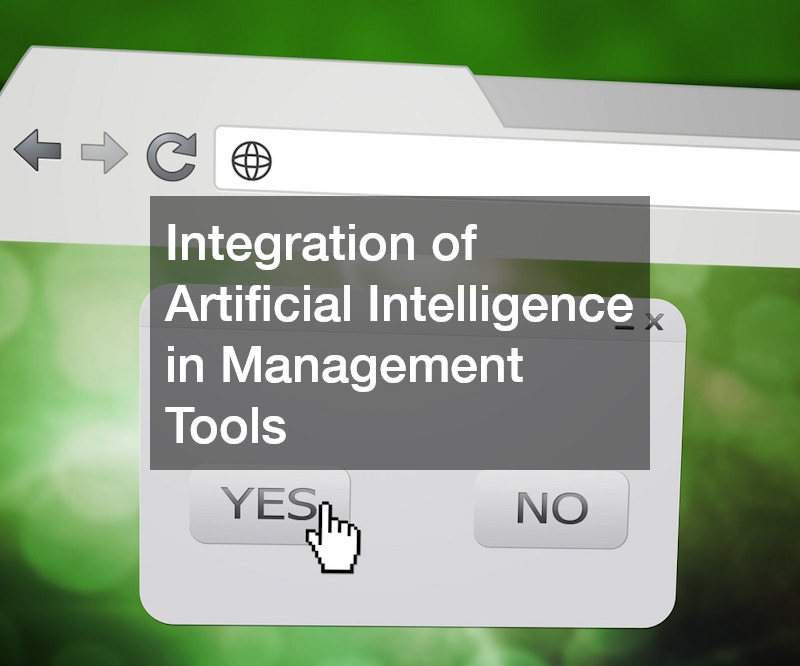Utilizing Technology To Your Advantage
The rapid evolution of business management technology has transformed the way organizations operate, making it a critical component of modern business strategies. From streamlining workflows to enhancing decision-making, these advancements empower businesses to remain competitive in an ever-changing market. By integrating innovative tools and platforms, companies can optimize efficiency, improve collaboration, and respond more effectively to emerging challenges. The growing reliance on technology reflects its importance in addressing both routine and complex operational needs, helping businesses meet customer expectations and maintain a competitive edge.
Beyond efficiency, business management technology plays a vital role in fostering innovation and long-term growth. By adopting cutting-edge solutions, companies can identify emerging trends, forecast potential challenges, and position themselves strategically for the future. This adaptability is crucial in industries where rapid changes in market demands, customer behavior, and global dynamics often require swift adjustments. As the demand for technological solutions grows, understanding the latest trends becomes essential for leaders who want to harness these tools for sustainable success. This guide explores key trends shaping the landscape of business management technology, highlighting how they are driving progress across industries and revolutionizing how businesses operate.

1. Integration of Artificial Intelligence in Management Tools
Artificial intelligence (AI) has become a cornerstone of business management technology, offering advanced solutions for automating tasks, analyzing data, and optimizing decision-making. Businesses are increasingly adopting AI-powered tools to enhance efficiency, reduce human error, and streamline complex processes. These systems can process large volumes of data with precision, enabling leaders to gain deeper insights into operations, market trends, and customer behaviors. By automating repetitive tasks such as data entry, report generation, and even customer interactions, AI allows employees to focus on higher-value activities like strategic planning and innovation. Additionally, AI can adapt and improve over time, learning from past performance to deliver increasingly accurate results and insights.
One practical example of AI integration is in managed IT services, where businesses utilize AI to monitor and maintain IT infrastructure proactively. AI-driven tools can detect potential system failures or security vulnerabilities, allowing IT teams to address issues before they escalate. Predictive maintenance powered by AI reduces costly downtime and enhances operational reliability, while automated ticketing systems improve response times for IT support. Furthermore, AI can optimize resource allocation by identifying patterns in system usage, enabling IT managers to prioritize investments in areas that yield the highest return. As businesses continue to explore innovative uses of AI, its role in enhancing business management technology is expected to grow exponentially, helping organizations achieve greater agility, scalability, and resilience in an increasingly competitive environment.
2. Adoption of Cloud-Based Solutions for Flexibility
Cloud-based solutions have revolutionized the way organizations manage their operations, offering unmatched flexibility, scalability, and cost-effectiveness. By storing data and applications in the cloud, businesses can access critical information anytime and anywhere, enabling seamless collaboration among team members, even across different time zones. This accessibility supports remote work, a growing trend in the modern workforce, and helps companies adapt to evolving workplace dynamics. Moreover, cloud solutions eliminate the need for extensive on-site infrastructure, reducing costs associated with hardware, maintenance, and energy consumption. This affordability makes cloud technology an attractive option for businesses of all sizes, from startups to large enterprises.
For local insurance companies, cloud-based platforms have become indispensable for managing client data, processing claims, and ensuring compliance with regulations. These solutions enable insurers to securely store sensitive information while maintaining easy access for authorized personnel, enhancing both efficiency and data security. Advanced cloud systems also offer real-time analytics, helping insurers make data-driven decisions and improve customer service. For instance, claims processing can be automated and streamlined through cloud-based tools, significantly reducing turnaround times and increasing customer satisfaction. By adopting cloud-based solutions, local insurance companies can remain competitive in a fast-paced industry while contributing to the broader transformation enabled by business management technology. This adaptability underscores the critical role of cloud solutions in enabling businesses to operate effectively in an increasingly digital world.

3. Rise of Data-Driven Decision-Making Practices
Data-driven decision-making is revolutionizing how businesses approach strategy and operations by prioritizing insights gathered from advanced analytics. This practice allows organizations to analyze large volumes of structured and unstructured data to identify trends, measure performance, and make informed choices. Data-driven strategies help reduce reliance on intuition and ensure decisions are backed by quantifiable evidence, resulting in improved accuracy and effectiveness. Businesses can use analytics to track customer preferences, forecast sales, optimize marketing campaigns, and evaluate employee performance. The shift toward leveraging data fosters a culture of continuous improvement and innovation, enabling companies to adapt to changing market conditions and remain competitive.
For a local title company, data-driven decision-making can streamline operations like property research, customer service, and compliance tracking. By analyzing data from public records, client transactions, and industry trends, title companies can identify potential risks or delays in the property transfer process. Predictive analytics can also provide insights into the real estate market, helping clients make better-informed decisions about buying or selling properties. Additionally, dashboards and automated reporting systems allow title companies to monitor their performance metrics in real time, ensuring efficiency and accountability. The integration of data into decision-making processes not only enhances operational efficiency but also builds trust with clients, showcasing the value of business management technology in fostering reliability and success.
4. Automation of Routine Business Processes
Automation has become a cornerstone of business management technology, enabling companies to optimize efficiency by handling repetitive tasks and streamlining workflows. By automating processes like invoicing, payroll, scheduling, and inventory management, businesses can save time, reduce human error, and improve accuracy. Automation tools also ensure consistency in operations, creating standard procedures that enhance reliability and scalability. For many organizations, automation is not just about replacing manual tasks but also about augmenting human capabilities. With tools like robotic process automation (RPA) and workflow automation platforms, businesses can accelerate processes that previously required significant time and effort. This increased efficiency allows employees to focus on high-value tasks such as strategy development and customer engagement.
For a septic pumping company, automation tools can revolutionize scheduling and dispatch processes. Automated systems can manage customer appointments, track routine maintenance schedules, and send reminders to clients, reducing manual workload and increasing accuracy. Additionally, GPS-enabled automation can optimize routing for service vehicles, minimizing fuel costs and improving response times. Automation can also be used for billing and payment processing, ensuring timely invoicing and payment collection. By adopting these technologies, septic pumping companies can enhance service quality, reduce operational costs, and foster stronger customer relationships. This trend demonstrates how automation is transforming traditional industries, bringing efficiency and consistency to once labor-intensive processes.

5. Enhanced Collaboration Through Digital Platforms
Digital collaboration tools are now essential for fostering communication and teamwork in modern businesses, enabling employees to connect seamlessly regardless of location. Platforms that integrate chat, video conferencing, and document sharing provide centralized spaces for teams to collaborate in real time. These tools improve project management, enhance transparency, and ensure that team members stay aligned with organizational goals. Digital platforms also eliminate common barriers to communication, such as geographic distances and time zone differences, making it easier for teams to work together efficiently. Enhanced collaboration drives innovation, strengthens relationships across departments, and promotes a culture of inclusivity and shared ownership.
For a tuck point company, digital collaboration platforms can improve communication between field teams and office staff, streamlining project updates, schedules, and client feedback. Field workers can share photos, progress reports, and challenges in real time, allowing office staff to provide immediate support or adjustments. These tools also enable easy coordination with clients, ensuring that expectations are aligned and any issues are resolved promptly. By using these platforms, tuck point companies can reduce miscommunication, minimize delays, and enhance project outcomes. Digital collaboration tools highlight how business management technology is empowering even traditional industries to achieve greater operational cohesion and success.
6. Utilizing Predictive Analytics for Business Forecasting
Predictive analytics has emerged as a powerful tool in business management technology, enabling organizations to anticipate trends and make proactive decisions. By analyzing historical data and identifying patterns, predictive models help businesses prepare for future challenges and opportunities. This approach improves resource allocation, reduces risks, and allows companies to remain agile in dynamic markets. Predictive analytics is becoming a critical component for businesses striving to maintain a competitive edge.
For a well drilling company, predictive analytics can optimize operations by forecasting equipment maintenance needs or identifying the best locations for drilling based on geological data. By using predictive models, these companies can reduce downtime, avoid costly repairs, and maximize efficiency. As industries increasingly rely on data-driven insights, predictive analytics is transforming how businesses approach planning and decision-making.

7. Incorporation of Internet of Things (IoT) in Operations
The Internet of Things (IoT) is revolutionizing business management technology by connecting devices, systems, and processes for greater efficiency. IoT-enabled tools gather real-time data, allowing businesses to monitor operations, track assets, and automate adjustments as needed. This interconnected approach streamlines workflows, reduces costs and provides valuable insights into operational performance. IoT is reshaping industries by enhancing transparency and enabling smarter decision-making.
For a golf cart maintenance service, IoT technology can monitor the performance of carts in real time, tracking battery levels, mileage, and potential mechanical issues. This proactive monitoring ensures timely maintenance, reduces unexpected breakdowns, and improves service reliability. The adoption of IoT reflects how connected technology is driving innovation and improving operational efficiency across various sectors.
8. Increased Focus on Cybersecurity Technologies
As businesses adopt advanced digital tools, the need for robust cybersecurity measures has become paramount. Cybersecurity technologies protect sensitive data, secure networks, and mitigate risks from cyber threats. This trend in business management technology ensures that organizations can operate confidently in a digital environment. With the growing frequency of cyberattacks, investing in cybersecurity is no longer optional but a critical component of modern business strategy.
For a roofing company, cybersecurity technologies safeguard customer information, project details, and internal communications. Implementing secure systems ensures that client data remains protected from breaches, building trust and credibility. As businesses of all sizes face increasing cyber risks, prioritizing cybersecurity reflects the essential role it plays in sustaining operations and protecting reputations.
9. Expansion of Mobile-Friendly Business Applications
Mobile-friendly applications have become essential in today’s fast-paced business environment, allowing employees and customers to access information and services on the go. These apps enhance convenience and enable seamless interactions, whether for managing projects, scheduling appointments, or tracking inventory. As mobile usage continues to dominate, integrating mobile-friendly solutions into business management technology is key to improving accessibility and user experience.
For a stained glass restoration company, mobile apps can streamline service requests, provide real-time updates on project status, and simplify customer communication. With intuitive, user-friendly interfaces, these apps ensure clients can engage with the business efficiently, fostering customer satisfaction and loyalty. The trend toward mobile-friendly applications highlights the increasing demand for technology that adapts to the modern, on-the-go lifestyle.
10. Leveraging Blockchain for Transparent Transactions
Blockchain technology is transforming business operations by offering secure, transparent, and tamper-proof systems for managing transactions. By creating decentralized ledgers, blockchain reduces the risks of fraud and ensures accountability. This trend in business management technology is particularly valuable for industries requiring high levels of trust and precision. Blockchain’s ability to streamline processes and enhance transparency is setting a new standard for efficiency and reliability.
For an auto repair company, blockchain can be utilized to track parts sourcing, service histories, and warranties, providing customers with detailed, verifiable records. This transparency builds trust and ensures customers feel confident in the quality and authenticity of the services provided. As blockchain technology becomes more widely adopted, its potential to redefine business processes across sectors continues to grow.
Implementing New Technologies
Business management technology is reshaping industries by introducing innovative tools and strategies that enhance efficiency, collaboration, and decision-making. From artificial intelligence to blockchain, these advancements empower businesses to navigate challenges and seize opportunities with greater agility. Staying informed about these trends ensures that organizations remain competitive and can leverage the latest tools to achieve their goals. Whether through improved data-driven decision-making, mobile-friendly applications, or robust cybersecurity, the integration of these technologies is not only transforming operations but also redefining what success looks like in a digital age. By embracing these advancements, businesses can thrive in a rapidly evolving landscape.

